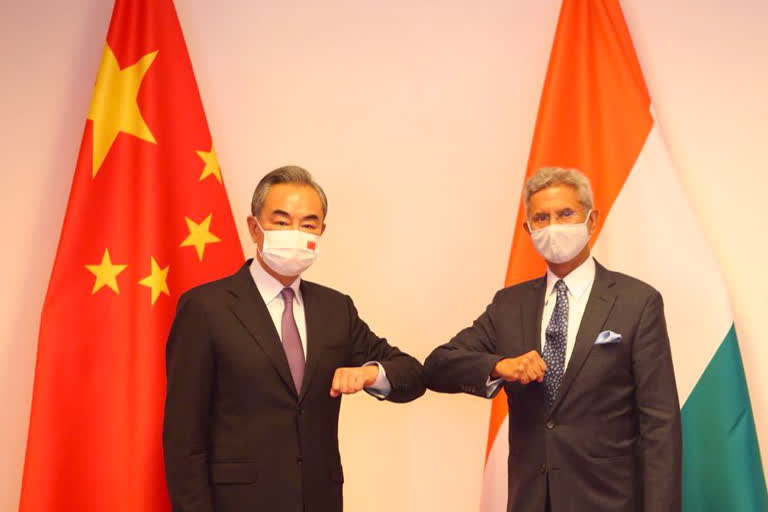Beijing: With India firmly conveying to China that the prolongation of the existing situation in eastern Ladakh was visibly impacting the bilateral ties in a "negative manner", Beijing on Thursday said it is ready to seek a "mutually acceptable solution" to the issues that require "urgent treatment" through negotiation.
During their hour-long in-person meeting on the sidelines of an SCO conclave in Dushanbe on Wednesday, External Affairs Minister S Jaishankar also told his Chinese counterpart and State Councilor Wang Yi that any unilateral change in the status quo along the Line of Actual Control (LAC) was "not acceptable" to India and that the overall ties can only develop after full restoration of peace and tranquility in eastern Ladakh.
The meeting in Tajikistan's capital took place amidst a stalemate in the disengagement process between the two militaries in the remaining friction points in eastern Ladakh after they withdrew troops and weapons from the Pangong Lake areas in February following series of military and diplomatic talks to resolve the standoff since May last year.
In a statement posted on its website on Thursday on Wang's talks with Jaishankar, the Chinese Foreign Ministry said, the minister stated that India-China relations remained at a low point while the situation at the border has generally been easing after the withdrawal of troops from the Galwan Valley and Pangong Lake.
Also read: EAM Jaishankar meets Foreign Minister of China on the sidelines of SCO meet
However, the relations between India and China are still at a low point which is not in anyone's interest , Wang said. While reiterating China's oft-repeated stand that it was not responsible for the China-India border situation, Wang, however said that China is ready to seek a mutually acceptable solution to the issues that require urgent treatment through negotiation and consultation with the Indian side. While China moved its troops from Galwan Valley and Pangong Tso, the disengagement has not been completed from other friction points like Hot Springs, Gogra and Depsang in eastern Ladakh.
In his meeting with Wang, Jaishankar firmly conveyed to that the prolongation of the existing situation in eastern Ladakh was visibly impacting the bilateral ties in a "negative manner" and rued that there was no forward movement from the Chinese side since the disengagement in Pangong Lake areas in February that had created conditions for resolving the remaining issues.
Jaishankar told Wang that any unilateral change in the status quo along the Line of Actual Control (LAC) was "not acceptable" to India and that the overall ties can only develop after full restoration of peace and tranquility in eastern Ladakh, according to statement issued by MEA on Wang-Jaishankar talks.
